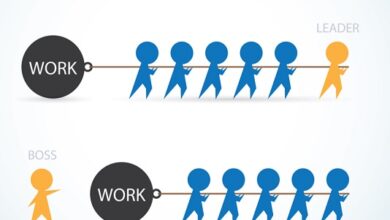What is sustainability in business sustainable development and benefits
Sustainability
Sustainability is a concept related to the conservation or maintenance of a scenario in the long term, in order to deal well with possible threats. In this article we will provide you information about sustainability in business.
In the environmental aspect, in which the term is often used, sustainability refers to a healthy planet, in which people can find the necessary conditions for survival, from generation to generation.
The notion of sustainability emerged based on the understanding that natural resources are finite .
In relation to biology, the term sustainability is linked to the ability of ecosystems to regenerate in the face of abusive use of natural resources or aggressions, such as fires and natural events, including landslides, tsunamis and earthquakes.
With regard to the economy, throughout the 20th century, the understanding developed that the world pattern of production and consumption would not be able to maintain itself.
What Does Sustainable Development Mean?
The CMMAD report defined sustainable development in the following terms:
“Sustainable development is development that meets the needs of the present without compromising the ability of future generations to meet their own needs.”
From this concept, we see that the notion of responsibility between generations is added to the concept of sustainability .
The reduction of social inequalities and the right of access to the goods necessary for a quality life are mentioned, in addition to adding an ethical dimension by proposing a commitment to the society of the future.
It is also important to mention that the report reinforces the social dimension within the concept of sustainability.
It does this by stating that environmental problems are largely due to poverty , making it urgent to reduce inequalities between nations.
These advances in the understanding of sustainable development culminated in the promotion by the UN of the United Nations Conference on Environment and Development, better known as Rio-92 .
It was the starting point for several international agreements , among which the Kyoto Protocol , the Rio Declaration and Agenda 21 stand out .
Rio-92 maintained the action guideline of the Stockholm Conference (1972), by proposing the management of natural resources in a responsible manner, without harming economic development.
At that time, the world was beginning to experience a new wave of economic expansion.
By joining the process of economic growth, Rio-92 provided the engagement of businessmen and politicians who, for the most part, joined the sustainability movement.
But this adhesion was not total or unconditional.
As an example, we have the United States, which until today has not ratified the Kyoto Protocol, despite the results exposed (in English) by the Intergovernmental Panel for Climate Change (IPCC) in 2007, regarding climate change .
Sustainability seeks to harmonize environmental, economic and social aspects.
Benefits Of Sustainability
When it comes to sustainability, it’s safe to say that everyone wins .
After all, we are talking about universal advantages such as:
- Improved quality of life
- Preservation of biodiversity and natural resources
- Reduction of environmental disasters
- Adopting healthier and more conscious habits
- More socially responsible companies
- Reduction of social inequality and all forms of prejudice
- food safety
- Improved economy due to eco -efficiency .
Different Types Of Sustainability
Within the scenario exposed so far, we can mention the specialization of sustainability, its main types being the following:
Environmental Or Ecological Sustainability
It comprises the preservation and maintenance of the environment , whose main objective is to ensure that the needs of future generations are not harmed by the indiscriminate use of natural resources today.
Corporate Sustainability
With the growing level of consumer awareness regarding environmental issues, companies have included sustainability within social responsibility in their strategic planning .
In this case, the actions are guided by the preservation of the environment and the search for improvement in people’s quality of life.
Social Sustainability
It is based on reducing inequalities among peoples , maintaining a dignified life and ensuring that basic human needs are met, such as health, education, culture and income.
Economic Sustainability
It is based on the responsible management of natural resources , in order to develop more efficient production methods, with less and less consumption of them, but without compromising economic growth.
The use of alternative transport contributes to the sustainability of the planet.
Food Sustainability
Food sustainability is guaranteed when food is produced in a responsible chain , which respects conscious parameters, both social and environmental.
To carry out this type of analysis, it is necessary to verify how much water and energy was spent in the process, whether the workforce is local, whether there is care with the waste released, among other points.
It also has to do with food security , which is the general population’s access to safe food.
In addition, it has to do with consumer practices, such as:



